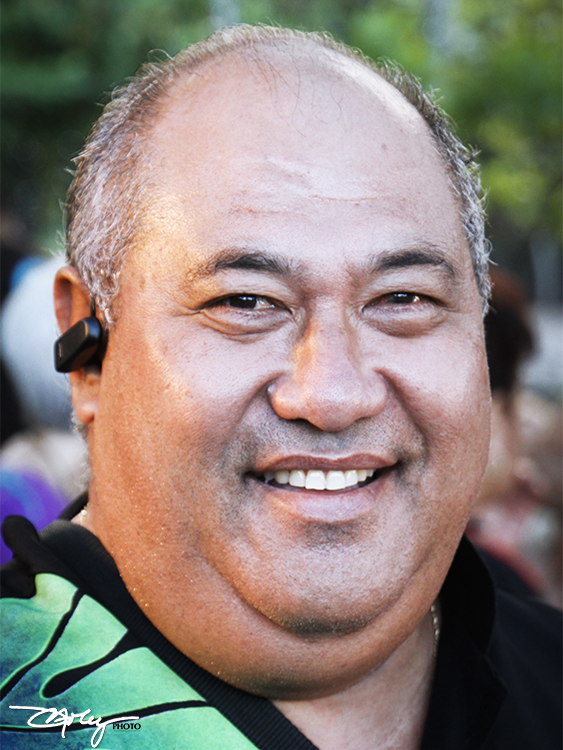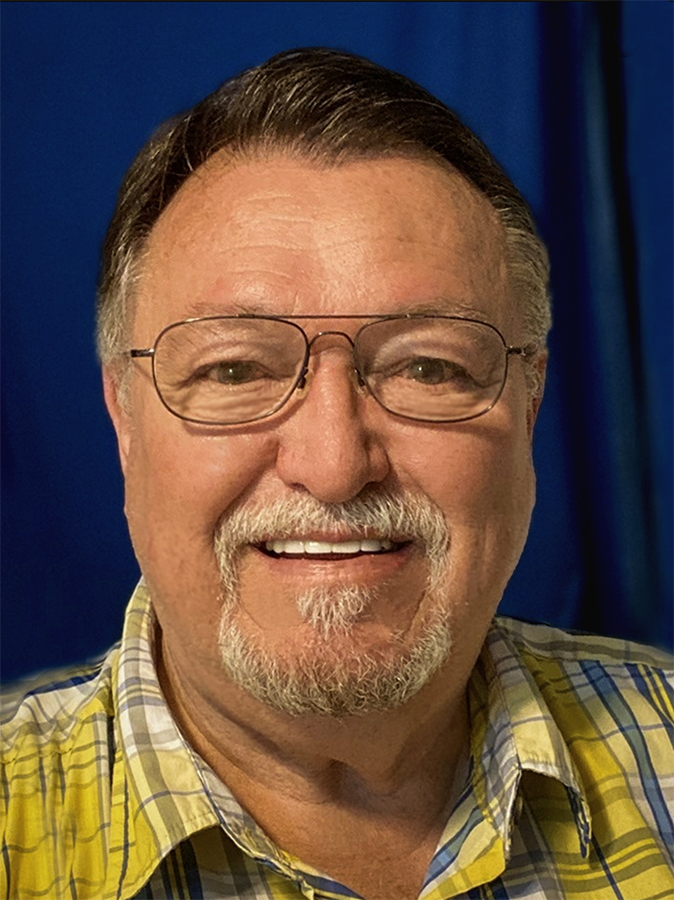
[Reprinted from pcc50.com, the Polynesian Cultural Center‘s 50th-anniversary website which is no longer active; originally posted September 12, 2013; interview and photo by Mike Foley.]
Introduction: Vi’iga Fuimaono Jr. is from Salani in Falealili, Upolu. At the time of this interview, he lived in Apia and was the human resource manager for the Church throughout both Samoas.
After graduating from BYU–Hawaii with a degree in business management, he returned to Samoa and worked for the government — five years managing festivals for the Tourism Authority, and almost another five years working for several government ministries.
He and his wife, Lupe Tafiti Fuimaono, came to BYUH with two kids, and left Laie with five. She has since taught in the Church schools in Samoa, and their kids all attended BYU–Hawaii and danced in the night show.
Canoe guide —a career platform: I first got here in 1988 and my first job was as a canoe guide.
When I went away for two years and came back, that was still the job I had the whole time I was here.
I always had a lot of fun making the tourists laugh throughout the whole tour. All of us had fun doing that. Indeed, I know all my “canoe boy” colleagues will vouch for that.
The PCC was my platform, in terms of my career. There was a time when I sat down and thought, what if I had never come to PCC? What would I have become? The essence of being here opened my eyes to different perspectives on life.
The difference between going to school here while working at the PCC, and other places, is that you gain an education, you gain work experience, and you gain lessons you can take home and use in your career and life.
One of the things I really appreciate about the PCC is it gave me the confidence that I can do anything. When I first went back to Samoa, I spent a lot of time sitting across the table from people who went on scholarships

to Australia and New Zealand.
They came back and thought they were “it,” that they were the elite.
Most of the time they looked down at BYU–Hawaii graduates; but I believe we positively had an edge over them, because we worked the whole time we were in school. They just went to school, then went home.
I always reflect on the things I learned at the PCC. The relationships we built with people from other cultures, you’ll never find anywhere else. This is like my second home.

